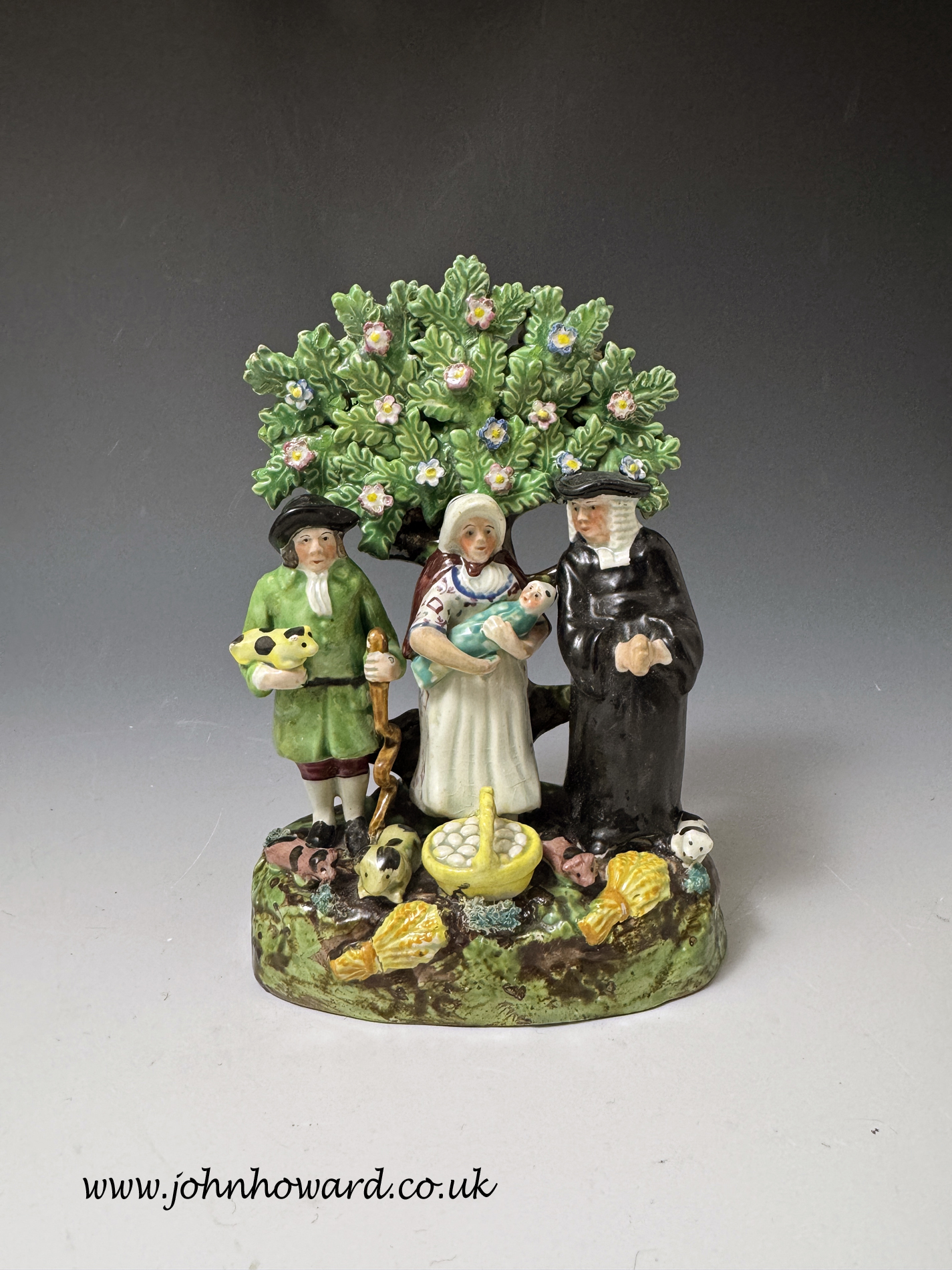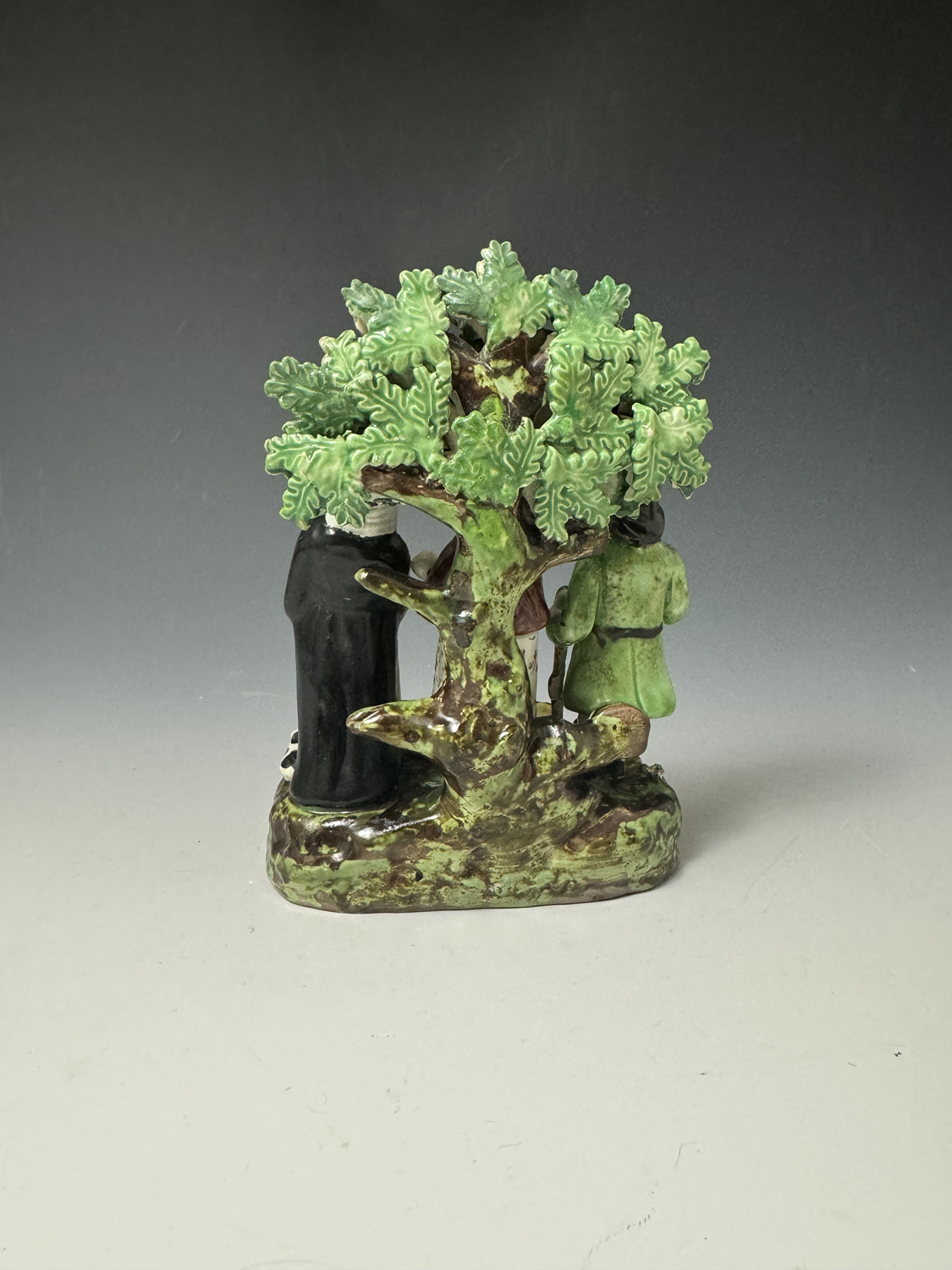Description
A good example of a Staffordshire Pottery pearlware glazed Pig Tithe group with bocage.
The figure is well decorated in high-quality enamels with an exceptional adornment of flowers at the bocage.
NOTE;
The satirical figure depicts Farmer Hob ( holding a pig ) and his wife (holding a newborn child) meeting the local vicar. The church rented land, and the common practice was to levy a “tythe” as part of the rent. This practice was very tough on the poor, and there was a national feeling that it should be abolished. The group captures the moment when Hob’s wife offers the baby as part of their produce and states, “If you do not take the child, there will be no handing over of the pig,” hence the somewhat startled expression on the clergyman’s face—the practice of imposing a tithe diminished and replaced by other devices such as ground rent in the early 19th century. In his writing of The Wealth of Nations, Adam Smith commented that it was an onerous and unjust practice.



